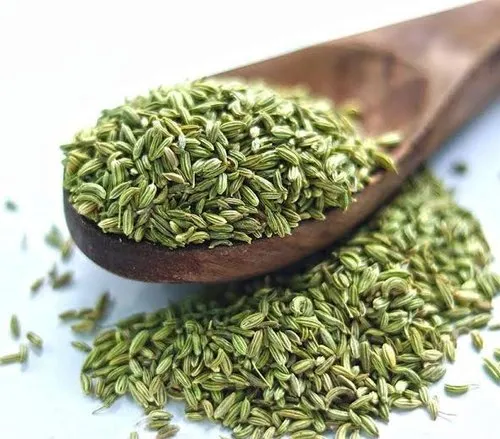Heartburn and gastroesophageal reflux disease (GERD) are common digestive issues that affect many individuals in India. If you’re seeking natural remedies to alleviate these discomforts, you’re in the right place. In this comprehensive guide, we’ll explore traditional Indian home remedies known for their effectiveness in soothing heartburn and managing GERD symptoms. From ingredients easily found in your kitchen to lifestyle adjustments, these remedies aim to provide relief and promote digestive wellness.
What are Heartburn and GERD?
Heartburn, characterized by a burning sensation in the chest, and GERD, a chronic condition marked by frequent acid reflux, can be triggered by spicy Indian foods, irregular eating habits, and lifestyle factors prevalent in the Indian population. This guide focuses on holistic approaches rooted in Indian culture to address these digestive concerns.
1. Buttermilk (Chaas)

How to Use:
Buttermilk is an excellent natural remedy for heartburn. Here’s how to prepare and use it:
- Ingredients:
- Half a cup of plain buttermilk
- Pinch of black salt
- A teaspoon of roasted cumin powder
- Take half a cup of plain buttermilk in a glass.
- Add a pinch of black salt to enhance flavor.
- Sprinkle a teaspoon of roasted cumin powder for additional digestive benefits.
- Stir the mixture well until the ingredients are thoroughly combined.
- Drink this mixture after meals to aid digestion and soothe the burning sensation in your chest.
2. Tulsi (Holy Basil) Tea

How to Use:
Tulsi, or holy basil, has anti-inflammatory properties that can help reduce acid reflux and heartburn. Follow these steps to make tulsi tea:
- Ingredients:
- Fresh tulsi leaves
- Water
- Honey (optional, for flavor)
- Boil a few fresh tulsi leaves in water for about 5 minutes.
- Once the water turns slightly green and the aroma of tulsi is released, remove it from heat.
- Strain the tea using a sieve to remove the leaves.
- If desired, add a teaspoon of honey for flavor.
- Sip the tulsi tea slowly to ease discomfort and soothe your digestive system.
3. Fennel Seeds (Saunf)

How to Use:
Chewing on fennel seeds after meals can promote digestion and prevent heartburn. Here’s how to use fennel seeds:
- Ingredients:
- Fennel seeds (saunf)
- Take a small handful of fennel seeds (saunf).
- Chew on the fennel seeds slowly after meals, allowing their natural oils to be released.
- Continue chewing until the flavor diminishes.
- Fennel seeds contain compounds that help relax the muscles of the digestive tract, reducing the likelihood of acid reflux.
4. Coconut Water (Nariyal Pani)


How to Use:
Coconut water is naturally alkaline, making it an effective remedy for neutralizing stomach acid and providing relief from heartburn. Follow these steps to use coconut water:
- Ingredients:
- Fresh coconut water (nariyal pani)
- Pour a glass of fresh coconut water.
- Drink the coconut water slowly whenever you experience discomfort to soothe your stomach and prevent further irritation.
- Coconut water is not only hydrating but also helps to alleviate heartburn symptoms.
5. Yoga and Pranayama

Adding yoga poses and pranayama techniques into your daily routine can help improve digestion, reduce stress, and alleviate symptoms of heartburn and GERD. Here are some yoga practices to try:
- Yoga Poses:
- Vajrasana (Thunderbolt Pose)
- Ardha Matsyendrasana (Half Lord of the Fishes Pose)
- Pranayama Techniques:
- Bhramari (Bee Breath)
- Sheetali (Cooling Breath)
- Practice yoga poses such as Vajrasana and Ardha Matsyendrasana to stimulate digestion and relieve digestive discomfort.
- Incorporate pranayama techniques like Bhramari and Sheetali to calm the mind, reduce stress, and promote overall well-being.
- Aim to include these yoga practices in your daily routine for optimal digestive health and symptom relief.
Try Lifestyle Modifications for Heartburn Relief
In addition to incorporating home remedies into your routine, consider making the following lifestyle changes to manage heartburn and GERD effectively:
- Eat Smaller, More Frequent Meals: Instead of three large meals, opt for smaller, more frequent meals throughout the day. Eating smaller portions can help prevent overeating and reduce the risk of acid reflux.
- Avoid Trigger Foods: Identify and avoid foods that trigger your heartburn symptoms, such as spicy, acidic, or fatty foods. Common triggers include citrus fruits, tomatoes, onions, garlic, chocolate, and caffeine.
- Stay Hydrated: Drink plenty of water throughout the day to help dilute stomach acid and prevent heartburn. Aim to consume at least 8-10 glasses of water daily, and avoid drinking large amounts of water during meals, as this can increase pressure on the stomach.
- Practice Stress Management: Stress can exacerbate symptoms of heartburn and GERD, so it’s important to find healthy ways to manage stress. Consider incorporating relaxation techniques such as deep breathing, meditation, or gentle yoga into your daily routine to promote overall well-being.
Do not Forget to Exercise for Digestive Health
Regular physical activity can promote digestive health and alleviate symptoms of heartburn and GERD. Try incorporating the following exercises into your routine:
- Walking: Take brisk walks after meals to aid digestion and reduce the risk of acid reflux. Aim for at least 30 minutes of moderate-intensity walking each day to support healthy digestion.
- Yoga: Practice gentle yoga poses that focus on stretching and relaxation, such as Cat-Cow, Child’s Pose, and Seated Forward Bend. Yoga can help improve digestion, reduce stress, and alleviate symptoms of heartburn and GERD.
- Core Strengthening: Engage in core-strengthening exercises like planks, bridges, and leg raises to support healthy digestion and prevent acid reflux. A strong core can help improve posture and reduce pressure on the stomach, reducing the risk of heartburn.
When to Seek Medical Attention
While home remedies can provide relief for occasional heartburn, seek medical attention if you experience persistent or severe symptoms, such as:
- Difficulty swallowing or persistent chest pain.
- Unintentional weight loss or frequent vomiting.
- Blood in vomit or stools.
- Chronic coughing or hoarseness.
Your healthcare provider can assess your condition, diagnose any underlying issues, and recommend appropriate treatment options.
Conclusion
In conclusion, these traditional Indian home remedies offer effective relief from heartburn and GERD symptoms, allowing you to enjoy your favorite foods and live life to the fullest. By incorporating these remedies into your daily routine, making lifestyle adjustments, and engaging in regular exercise, you can promote digestive wellness and experience lasting relief from discomfort. Remember to consult your healthcare provider if you have any concerns or if your symptoms persist despite home treatment.


